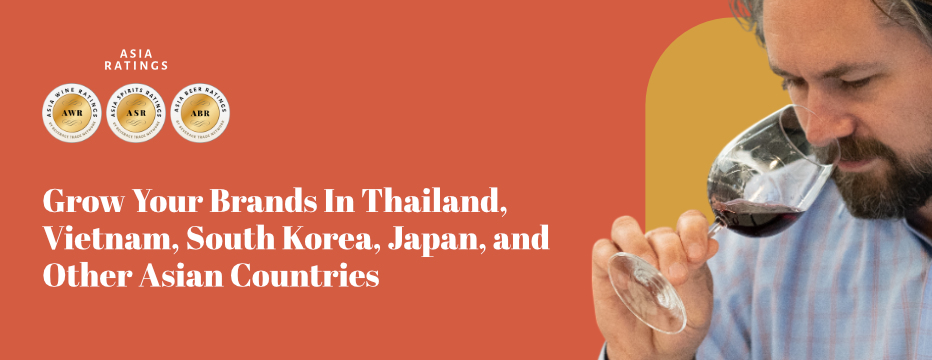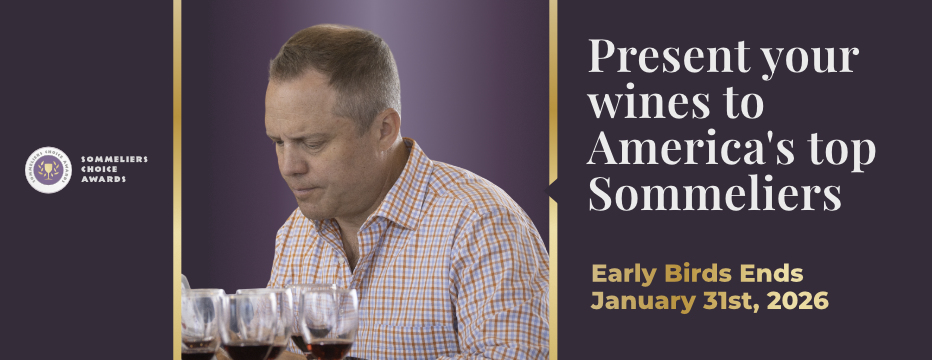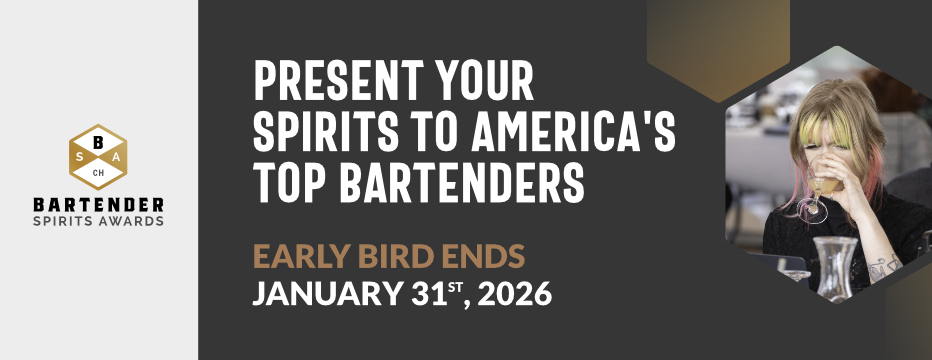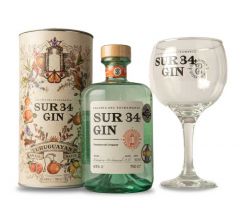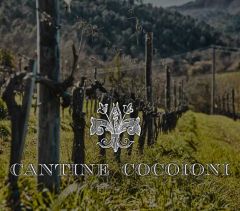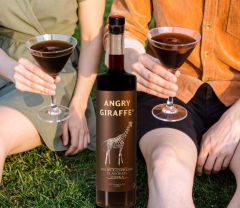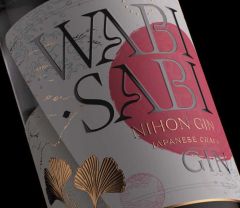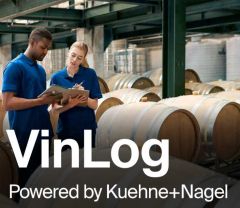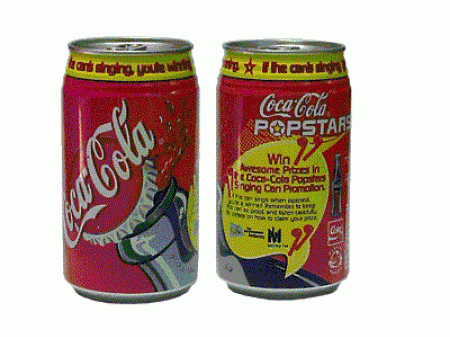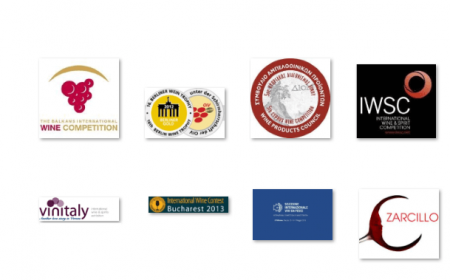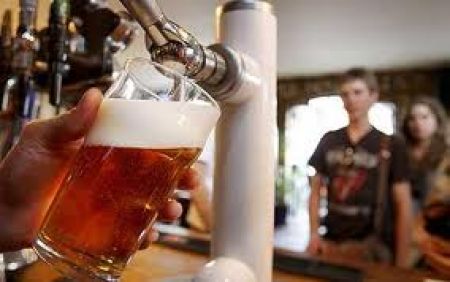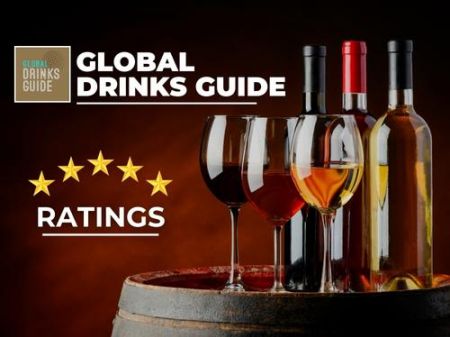Sommeliers Choice Awards 2025 Winners
Rediscovering Heritage: Scott Blackwell on Reviving Forgotten Grains in Distilling
South Carolina’s craft distilling grows through legislative wins.
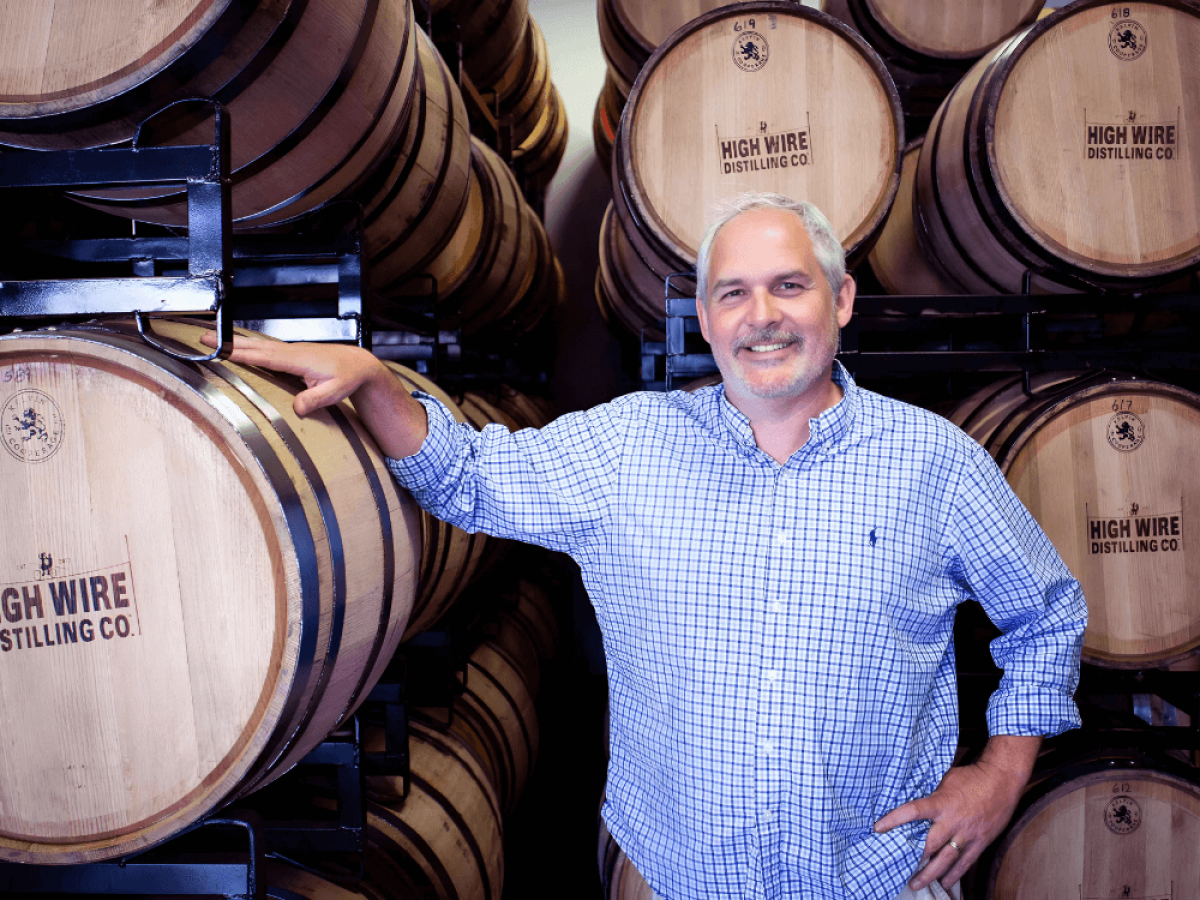
Scott Blackwell, co-founder of High Wire Distilling and President of the South Carolina Craft Distillers Guild, intertwines history, agriculture, and sustainability in the spirits industry. With a passion for reviving heirloom grains like Jimmy Red corn and a commitment to regenerative farming, High Wire has become a symbol of artisanal distilling rooted in local heritage. As an advocate for the state’s distilling community, Blackwell has led efforts to transform legislative landscapes, making it easier for small distillers to thrive. In this interview, he shares his journey of preserving forgotten grains, the Guild's legislative victories, and his vision for the future of South Carolina’s craft spirits.
Scott, as President of the South Carolina Craft Distillers Guild, you play a key role in advocating for the state's craft distilling industry. Can you tell us about the Guild’s most recent legislative wins and how they’ve impacted local distillers?
As a guild, we had a huge legislative win for small SC distilleries in 2021. We filed a bill labeled the "Micro Distillery Parity Act” which would differentiate us from liquor stores and be seen as what we are which is an agro-tourist destination and manufacturer. In the bill, we were able to double the number of bottles we sell out the front door, sell food, sell beer, wine, and cocktails, sell merchandise from our main tasting room area, stay open until midnight 7 days a week (bottle sales 9-7 PM Monday-Saturday). That's just a few of the major changes that we were able to make and it has had a great impact on the visitors' experience, the ability to hire more staff, and better show off who we are and what we do.
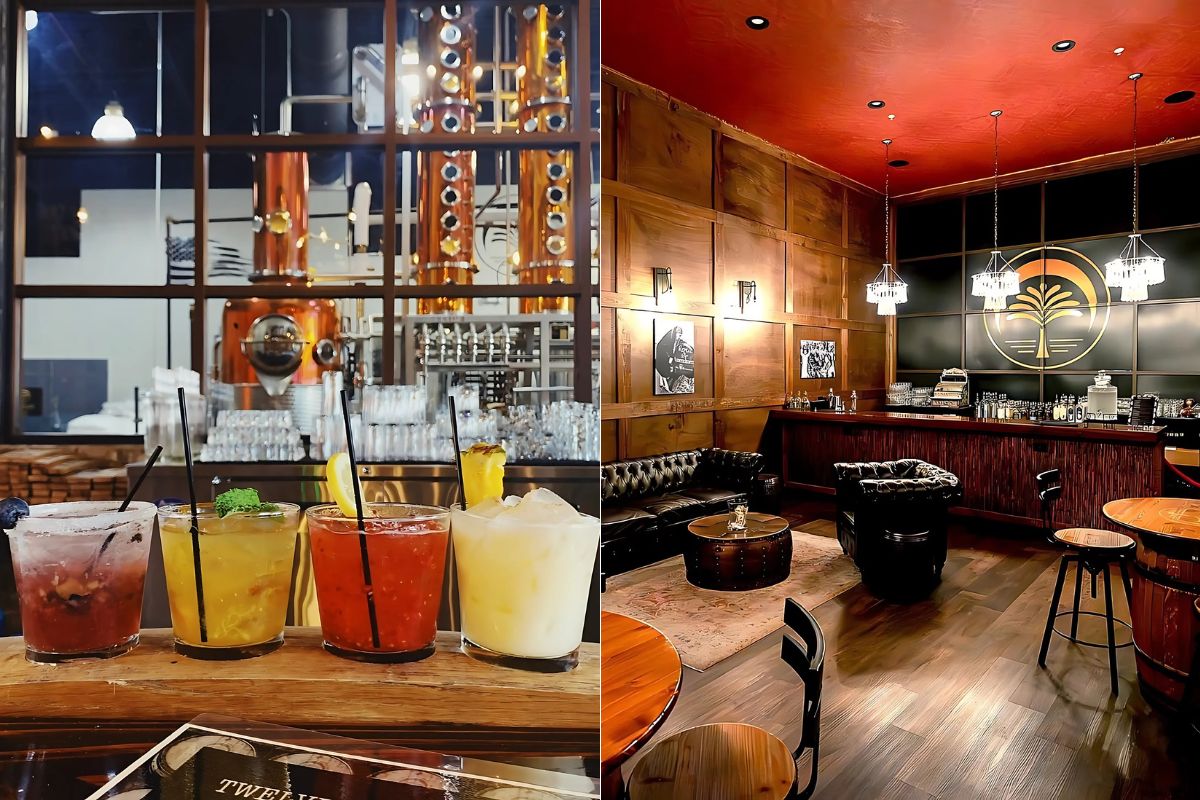
Image: Twelve 33 Distillery is located in Little River, SC near North Myrtle Beach, SC. They offer tours and tastings 6 days out of the week and have just recently extended their tasting hours til 9 pm. Source: SCCDG
The partnership between the Guild and Spirits United has been a significant step for South Carolina’s craft distillers. How has this collaboration enhanced the Guild’s advocacy efforts, particularly in expanding distilled spirits sales and market growth?
We signed on with SU during a busy moment for craft distilleries. There was an effort to help reduce tariffs on spirits heading into the EU as well as, the Craft Modernization Act which would allow for a reduction in FET for small producers that aligned us more with what beer and wine producers were paying. Earlier this year we reengaged on a state-level bill to allow for Sunday sales at liquor stores, including a carve-out for micro distilleries. SU was helpful in better organizing our grassroots efforts. We made great headway unfortunately, the bill didn't pass even after multiple amendments were made.
As a craft distiller in South Carolina, what do you see as the most significant challenges and opportunities facing the local spirits industry today, both from a regulatory and market perspective?
We are lean in resources both in people and dollars so we see challenges in distribution; getting distribution and getting/keeping the attention of our distributors, retailers, and customers. It's not that unique to spirits but the one thing that sets Spirits apart is the three-tier system which means that our hands are a bit more tied when trying to find paths to the end customer. We often encounter customers and retailers wanting our spirits but have found that it can be a bumpy path to get the product into their hands. It's also state by state so learning all of the different rules is a real challenge that we face.
[[relatedPurchasesItems-31]]
High Wire Distilling has gained a reputation for reviving heritage grains like Jimmy Red corn (Abrev. JR). What initially inspired you and Ann Marshall to focus on these forgotten grains, and how have they shaped your distillery’s identity?
We come from the culinary side of the business. Neither of us had ever distilled spirits. We both had been in the food business so we leaned heavily on that experience. So we started out thinking about the raw ingredients as we were learning to distill and getting a better understanding of the relationship between raw ingredients and end flavor. It was very telling. We knew that eventually, we wanted to make a bourbon, one that best represented this area and told a unique story. All of that thinking led us to start with the primary ingredient in bourbon; corn. Also the term "flavoring grain" had us scratching our heads especially since corn was typically 70-80% of most mash bills Armed with that line of reasoning, we reached out to the person we thought could help us better understand corn from around this region, Glenn Roberts of Anson Mills. Glenn met us down at Clemson Research Center south of Charleston and went through a table full of seeds. Toward the end of his talk, he pointed to corn in the middle of the table and said, Jimmy Red (James Island Red) corn that's the one you want. It's a corn that's been around here for years and was known for making excellent whiskey. The trick was that there wasn't enough JR (Jimmy Red Coorn) to make a batch of whiskey to see how it tasted. So we enlisted the help of Clemson Research Farm and grew out 2.3 acres. So later that year of 2014 we made our first batch of JR. We knew even in our limited experience, in the mashing stage, that this corn was different. It had a different flavor and different viscosity from any of the other heirloom corns that we had experimented with thus far. We filled two barrels and tasted it with our friends, chefs, and writers over the next two years - we knew we had something special. Here we are 10 years later and we have made thousands of barrels of JR and have scaled farming to over 450 acres. We have continued experimenting with other grains and processes but again we got lucky by having the right resources here in our backyard to bring a unique bourbon to the category.
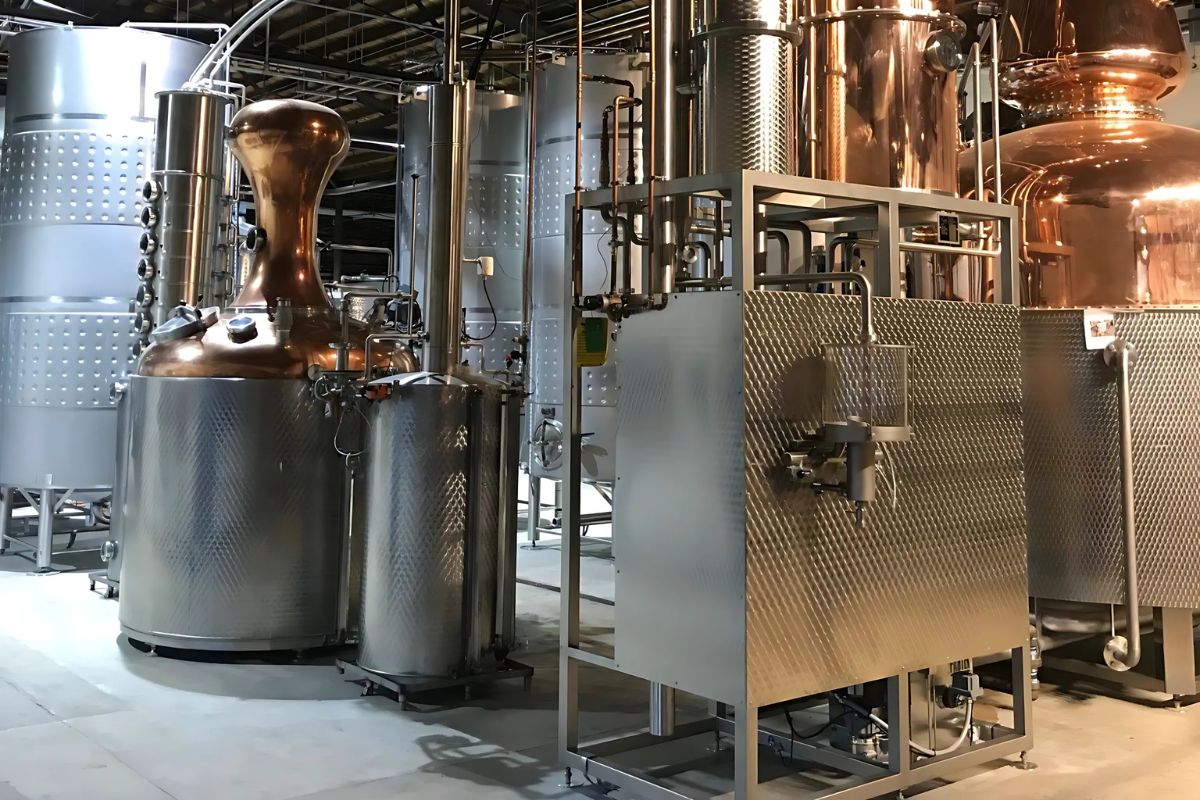
Image: High Wire Distillery.
High Wire Distilling’s commitment to regenerative farming practices and seed preservation sets it apart from many other distilleries. How do these practices influence the flavor and character of your spirits?
We obviously feel that taking care of the soil and seed has a direct impact on maintaining flavor. In 2019 we traveled to Mexico twice along with geneticists and seedsmen to learn how scientists and indigenous people care for their fields, crops, and seeds. It was eye-opening and refreshing to see that much care and pride in farming practices that have been in place for centuries. We also were able to better understand the relationship between variety and use of the maize which cemented the theory that we’ve had when it comes to working with heirloom/landrace varieties of grains. Also, we saw ancient planting practices of “no-till” cover and rotational crop farming all of which we do here in SC. As a result, we’ve been seeing improvements in consistency in flavor, plant health, and yield.
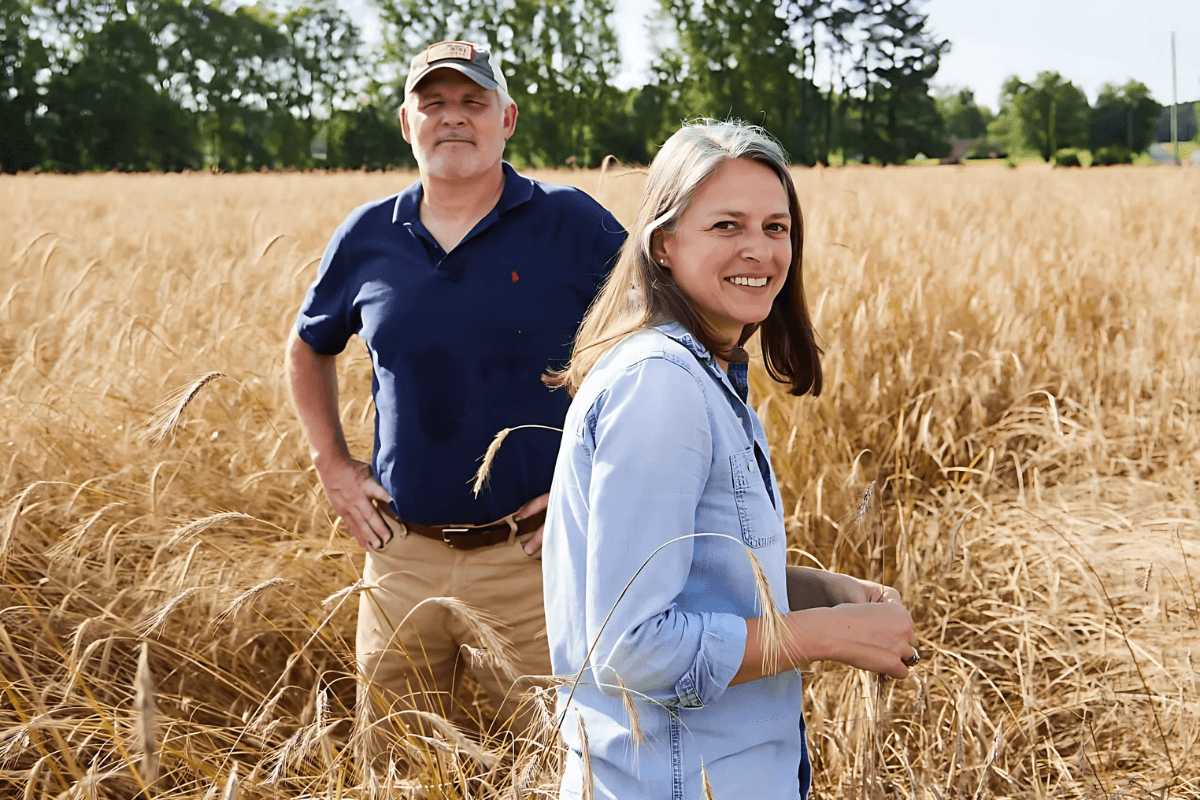
Image: Scott Blackwell and Ann Marshall in the mid-field of Sonoran white wheat, that will soon be harvested and milled for a wheated Bourbon.
High Wire Distilling has built a reputation for creating whiskeys that tell a story of place and history. How important is the concept of terroir in the production of your spirits, and how does it resonate with your customers?
Terroir is ultimately a really awesome word for "phenotypic plasticity": the ability of individual genotypes to produce different phenotypes when exposed to different environmental conditions. So it basically means that if we take a seed from say Arizona and plant it here, it will change year over year. the seeds will adapt and become what is ultimately known as “Landrace” so more of a place. I also believe that beyond the farming there’s the process at the distillery, the types of barrels, and the conditions in which the whiskey is aged. All of that has an impact on the end flavor. We are in a subtropical environment here in Charleston surrounded by brackish and salt water - so the atmosphere and air have a direct impact on aging and process (and probably the farming) so I think we are telling a story of this place by growing and making everything here.
You’ve described drinking as an "agricultural act." How do you think this philosophy connects consumers more deeply with their spirits, and what role does sustainability play in crafting your products?
When we started distilling I thought to myself “How much of the ingredient really comes through a still?” If you watch distilling it's really pretty boring clear liquid trickling out - it all looks the same but what your eyes don't see is the connection with that raw ingredient - all the nuances are there. So we both started to look at bottles on the shelves of stores differently and with more curiosity “I wonder what sort of grain(fruit) they use? Where is it from?” “Do they add anything (coloring etc meaning liqueurs, gins, etc)?” Then it hit us over the head with something that should have been obvious and went beyond a good story or age and that is that all distilleries are directly connected to agriculture in some way. Be it, industrial agriculture or by using a special fruit, herb, or grain. So when I give a tour I like to say "Look at that wall of bottles in the tasting room, it's all agriculture - someone grew it, nurtured it, and saw the specialness in doing that. We owe it to them to do the best that we can to make it shine and bring out the best that we can.
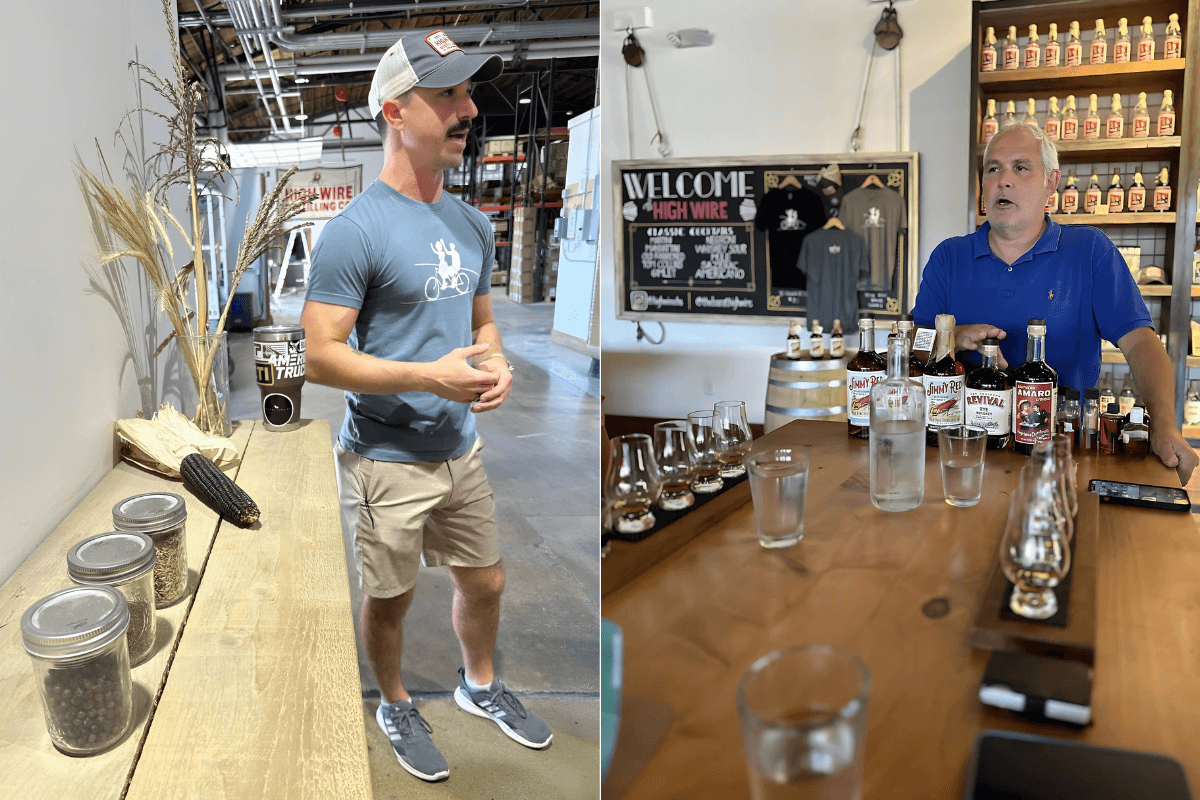
Image: (Left) Alexander Helms, Head Distiller/Brand Ambassador of High Wire Distilling Co., and (Right) Scott Blackwell with his brands.•
Looking ahead, what are your goals for the South Carolina Craft Distillers Guild? Are there any new initiatives or projects on the horizon that you're particularly excited about?
As far as the guild goes, we’re getting our feet under organizationally and have a growing membership. As of now, our biggest focus is getting more parity with breweries and wineries in the state. Spirits are treated very differently and there has long been a stigma associated with our sector so we’re trying to dispel that thinking. With that in mind, we’re working on telling our story as a group and the positive impacts that we are making within the state with farms, and tourism, and shining a positive light on all that SC has to offer.
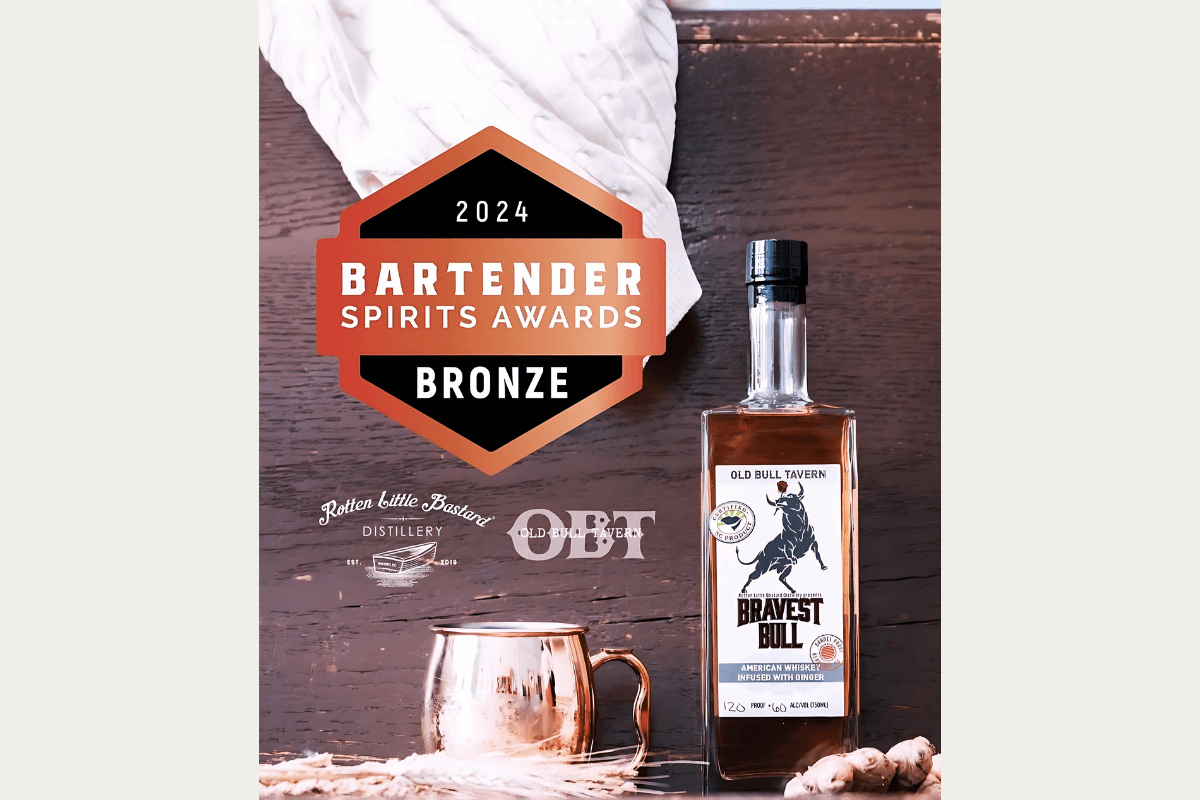
Conclusion:
As Scott Blackwell continues to push boundaries at High Wire Distilling, his efforts to preserve heritage grains and advocate for craft distillers have reshaped South Carolina’s spirits landscape. By intertwining history, agriculture, and sustainability, Blackwell has not only enhanced the flavor of his spirits but also redefined what it means to craft them. With the South Carolina Craft Distillers Guild gaining momentum, Blackwell's vision for the future promises to drive even greater growth for local distillers—one that honors the state’s rich agricultural roots while embracing new opportunities in the industry.
In conversation with Malvika Patel, Editor and VP, Beverage Trade Network
Also Read:
Distilling Success: A Conversation with David Cohen, President of the FCSA
Navigating the Spirit Trail of Paso Robles with Aaron Bergh
Teresa Casey, NY Distillers Guild Discusses the Evolution of New York Spirits

